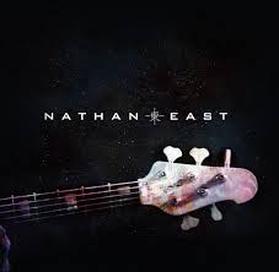
From the first time I heard him on Earl Klugh’s 1981 album “Crazy for You” and then on Al Jarreau’s “High Crime” to the first time I saw him perform with Eric Clapton in the late 80s, every touch of the bass, every smile, every head bop was pure charm. I found myself seeing Clapton twice on that tour and the second time was to see Nathan East.
Think of the memorable bass line in Michael Jackson’s “Bad” and the now recognizable bass in the latest Daft Punk release and you’re hearing Nathan East. The list of artists he has supported is long and impressive: Quincy Jones, Phil Collins.
And what Jazz lover can forget that he is a founding member of Fourplay? Or that incredible Grammy Awards show performance with Daft Punk and Pharrell Williams and Stevie Wonder and Nile Rodgers?
It is amazing that Nathan East is being referred to as “the bass player” for Daft Punk. USA Today’s headline for the article read “Daft Punk’s Nathan East heads off in his own direction.” Even Billboard’s header was “Daft Punk bassist Nathan East readies solo debut.” While Billboard was technically correct, still it rankles that the man who has been called the “Bishop of the Bass” is now seen as a renegade from Daft Punk.
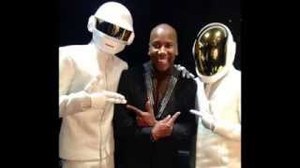
All this sets up what must surely be the most anticipated debut solo album since Thomas Edison invented the thing. Still, it is difficult to categorize this as any sort of debut since Nathan has been around for such a long and stellar career. I mean, Nathan was drafted into Barry White’s Love Unlimited Orchestra when he was only 16 years old. But this album is certainly worth the wait and it is titled, appropriately and simply, “Nathan East.” Nothing more need be said.
He described his own process of choosing what songs would be on the album by saying that he and fellow-producer Chris Gero began writing song titles on a white board. Then began the excruciating process of dwindling it down. Eventually, they settled on 26 songs and recorded all of them. Only 14 were released on this album and Nathan assures that the remaining songs will see the light of day soon.
“101 Eastbound” was a song he wrote for Fourplay more than 20 years ago and it remains one of the band’s permanent set-list numbers. On this version, he adds a Brazilian feel to the song. In a “come-full-circle” sense, Nathan’s album is recorded at Ocean Way Studios where “101 Eastbound” was first recorded with Fourplay.
Nathan readily admits that his philosophy of playing has not really changed that much over the last 20 years. Doing “what’s right for the music” is still his chief concern.
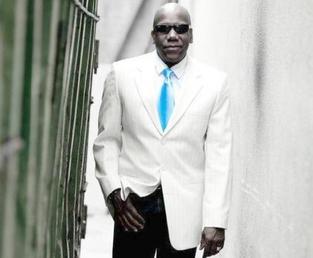
In the treatment of Stevie Wonder’s “Sir Duke,” Nathan’s bass takes the vocal line and channels Stevie incredibly. The arrangement is spectacular. After only two bars, the key is kicked up a minor third by the horns and is then walked back by half-steps. The effect is to settle you in briefly for what is assumed to be an instrumental version of the song then completely kicks the chair from beneath you with a “Hey! This is fun!” ride to the very end. Stevie would be pleased, I’m sure.
Following the rousing and riveting “Sir Duke” is the memorable Pat Metheny song “Letter from Home.” It is delicate and almost nocturne-like. It is one of my favorite Metheny pieces ever and it prospers under Nathan’s touch. The open-vista orchestration carries the listener willingly along a stream of remembrance. On an album full of stand-out moments, this is one of those that stands out just a little more.
A light bass-walk briefly introduces the fourth track until the unmistakably brilliant vocals of Michael McDonald slide in. McDonald initiates the song with the languid voicing of Van Morrison’s original until McDonald turns back into McDonald. He abandons the smooth and easy approach in favor of a raw and throaty attack on the lyrics. It’s like James Brown stealing the mic from Nat King Cole.
The great Tom Scott (L.A. Express and others) wrote the big band horn arrangement and it smokes! Producer Chris Gero had told Scott what he wanted and Scott took it home and brought back the rhythm charts and horn charts and Nathan never wanted to change a thing.
It is a stellar alignment on the album. The camaraderie and trust between musicians, composers, arrangers and producers allows for pure brilliance. And that is exactly what happens on this album.
Michael McDonald wrote the succeeding track but it is Sara Barielles who sings it. “I Can Let Go Now” is one of the most emotional pieces written in the last 40 years.
| | |
It had appeared that Sara’s schedule would not allow her to participate when first asked about lending her voice to the song. But Chris Gero sent the instrumental track with full orchestration and her response was “Oh, I have to sing on that!” It took her a month to work it out but she finally was able to record and the effect is hypnotic.
Nathan admits that, whenever he hears Michael perform the song, he “just can’t stop weeping.” The effect of Sara’s treatment is the same.
Mercifully, the succeeding track moves from melancholy to bone-crushing funk at its finest. Fresh off his participation with Daft Punk in their latest work, Nathan brings along Mr. Talkbox for the track entitled “Daft Funk.” This one grabs from the start with a guitar that sounds like it belongs on James Brown’s “Get Up Offa that Thing.” Then comes the bass and drums and this song is off to the mothership.
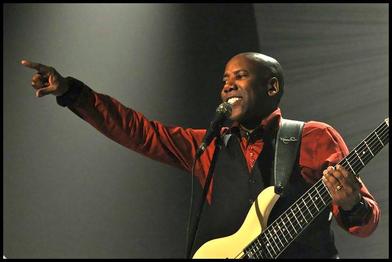
Chuck Loeb is now a member of Fourplay and Nathan describes Chuck’s writing in terms of “chop-busing be-bop lines.” The title is a play at words coming from their respective birthdays. Chuck was born on December 7 and Nathan on December 8 and, according to Nathan, they try to celebrate near midnight rendering a 7/8 celebration.
The track itself is fast and furious with its foray into Brazilian sounds and time signatures. The song itself is a celebration.
What follows is one of my favorite songs ever from the rock genre. When Cream broke up in 1968—and Traffic, temporarily in 1969—Eric Clapton and Steve Winwood joined together to form Blind Faith. On their only officially released LP, Steve Winwood’s “Can’t Find My Way Home” was a huge success. It’s popularity seems to have risen over the years and has been covered by the likes of Sheryl Crow, Allison Krauss, Joe Cocker and even Styx. It has been performed by Clapton and Winwood—separately and together—in the succeeding years.
The song opens with piano, bass and drums with the guitar of Eric Clapton gently joining. The bass line is exquisite and I found myself immediately thinking, “Oh, I hope nobody sings on this.” When the moment arrives, sure enough, a voice emerges but it is Nathan East singing! It was touching and tender. It was more than I expected and far more than I dared hope. It was magnificent.
Clapton, Nathan’s friend of more than 20 years, participates in beautiful understatement. This track may have been the biggest and best surprise on the album. Honestly, it made me love the song more than ever.
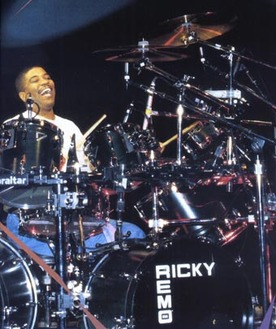 The talented and trusted friend, Ricky Lawson.
The talented and trusted friend, Ricky Lawson. The sweetness of that friendship is rendered bittersweet when one realizes that this would be Ricky Lawson’s last work with Nathan. Ricky was a founder of Yellowjackets and was close friends with Nathan for many years. Ricky called Nathan his “brother from another mother.” Nathan discloses that it was Ricky who would check in on Nathan’s family when Nathan was on tour. Sadly, Ricky passed on December 23, 2013, of a brain hemorrhage. Nathan has dedicated the album to Ricky, calling him “One of my dearest friends in this life.”
“Overjoyed” is the second Stevie Wonder composition on the album and Nathan describes the incredible way that the song came to be included (and to include Stevie himself) on this album. Nathan was performed at one of Sting’s Rainforest Benefit concerts at Carnegie Hall. He was doing a sound check and played his version of the song. Suddenly, as he is playing, he hears a harmonica playing along and turns to see Stevie Wonder joining him onstage.
“I didn’t even know that Stevie was in the room,” he explains. “Stevie is playing along and we get through the whole tune and everybody—Sting, Bonnie Raitt, Elton John, James Taylor, all these people—start applauding!” Stevie then walked over to Nathan and said, “If you ever record it, let me know. I’d love to play on it.” The result is a one-take track that gave Nathan “goosebumps” during the recording of it.
One delightful surprise is the inclusion of the Beatles’ “Yesterday.” The track opens with a young man’s voice asking, “You ready, dad?” Nathan’s voice answers, “Ready, son.” “Okay, let’s do it,” the boy responds. It is a piano and bass version of the song and is very sweet with young Noah East playing an endearing jazz-phrased version as father Nathan accompanies his 13 year-old boy. Nathan also provides the vocals which conjure images of Nathan looking at his young son and thinking of when he was 13 years old…”Yesterday all my troubles seemed so far away…” This is a gem.
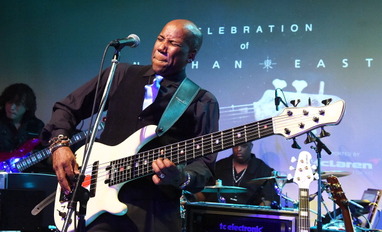 The CD release party for "Nathan East"
The CD release party for "Nathan East" Enough cannot be said of this track. The Afro-Brazilian world feel is rapturous. There is also three separate bass solos in the song. Nathan’s brother Marcel describes it by saying, “Put Earth, Wind & Fire, Weather Report and Pat Metheny into a blender and you get this song.”
A Latin chant is followed by a kind of African scat-improv that makes the song global. The organ takes on a Gospel feel in its intensity and reach. The song is almost the perfect storm—Afro-Brazilian rhythms, Latin, call-and-response, Gospel, Mandela and Nathan East. Seriously, it just can’t get any better.
But then it does…
Ray Charles recorded it. Jaco Pastorius even did a bass solo version of it. But Nathan East adds a lush string orchestration that is inspired. In fact, he sits right in the middle of them during the recording.
The song is “America the Beautiful.” Sometimes—often, actually—I have great concerns about our country. I don’t like the divisions and the rancor and the hate-filled speech. I don’t like what we are doing to each other.
Then I hear Nathan play this song from his heart. The song is not only about the splendor of the landscape but is about “brotherhood, from sea to shining sea.” Nathan’s bass is gentle and hopeful and he inspires hope in us. In speaking of his version of the song, he said "I just wanted to put love back into the mix."
Hope, grace and charm are the hallmarks of “Nathan East” the album and—much more—Nathan East the man.
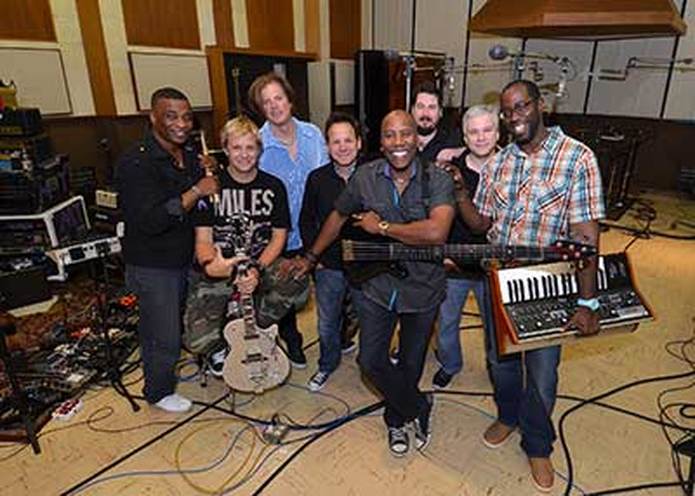 Pictured in Ocean Way’s renowned Studio B are (L-R) Ricky Lawson,drums; Jeff Babko, keyboards; Michael Thompson, guitar; Chris Gero, producer; Nathan East, bass, producer; Wesley Sideman, assistant engineer; Brian Lennox, engineer; and Tim Carmon, keyboards. (Photo by David Goggin)
Pictured in Ocean Way’s renowned Studio B are (L-R) Ricky Lawson,drums; Jeff Babko, keyboards; Michael Thompson, guitar; Chris Gero, producer; Nathan East, bass, producer; Wesley Sideman, assistant engineer; Brian Lennox, engineer; and Tim Carmon, keyboards. (Photo by David Goggin) Visit Nathan East's website at: http://nathaneast.com/
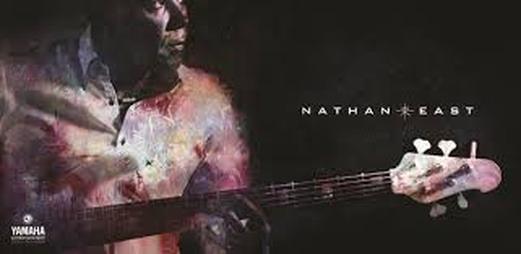
 RSS Feed
RSS Feed
